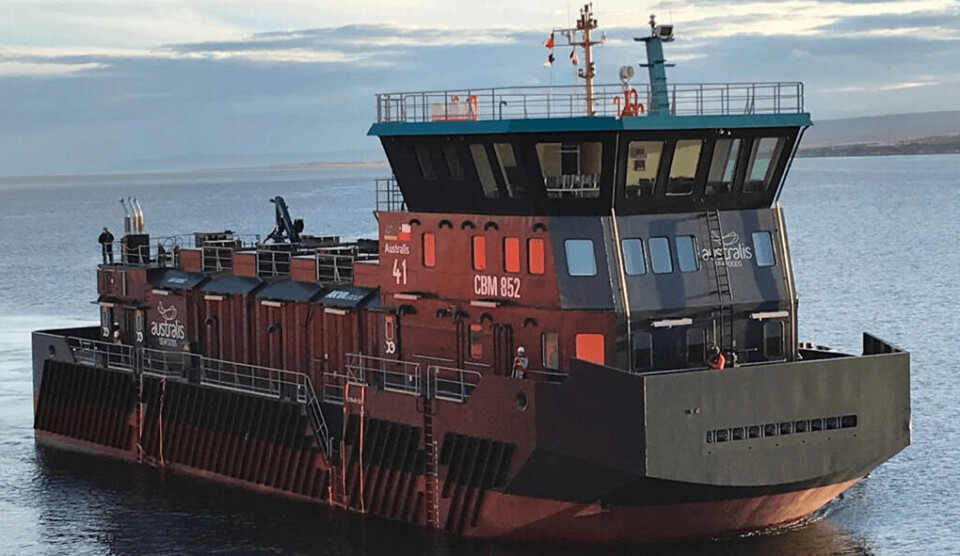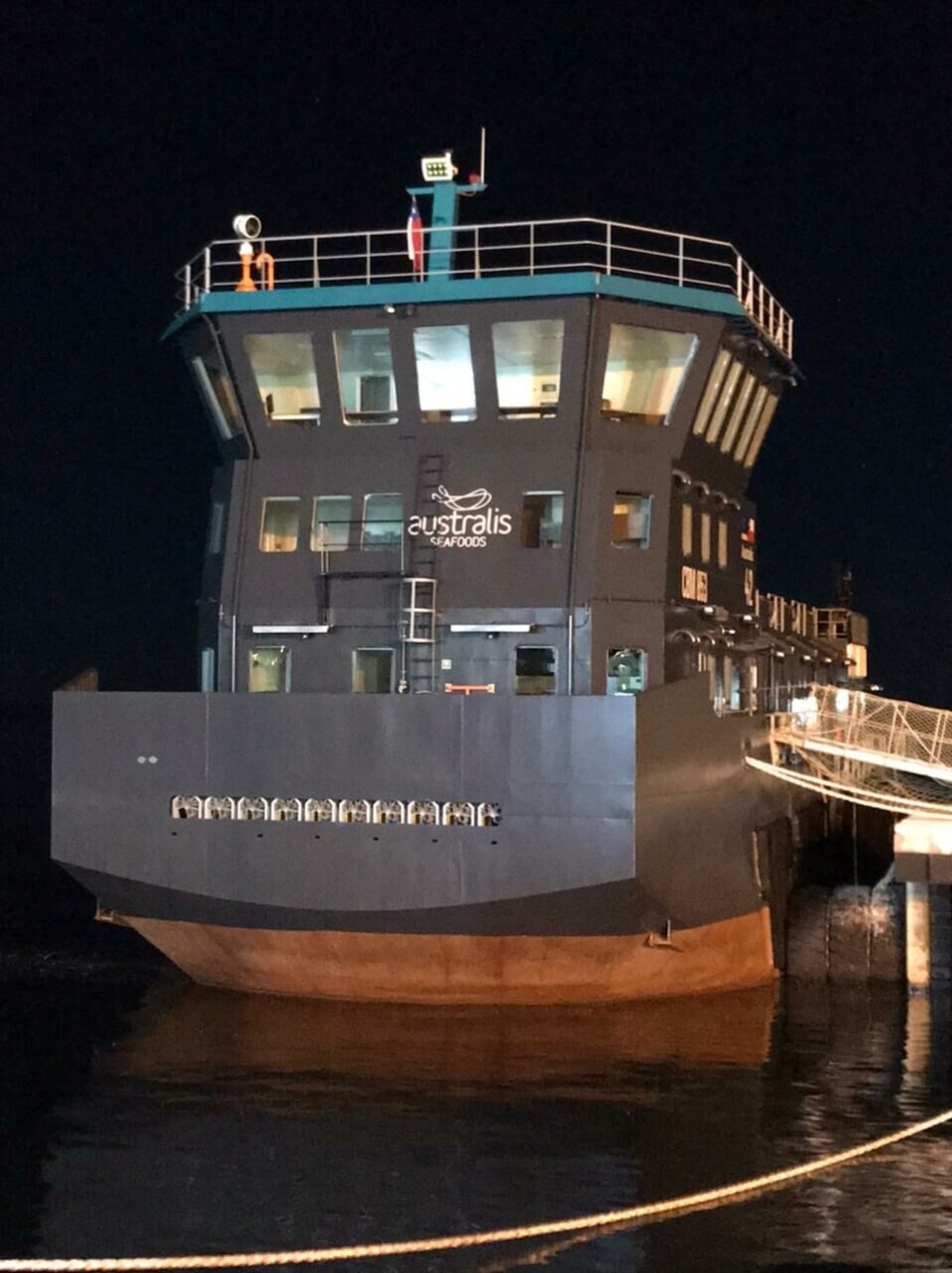
AKVA delivers its first Chilean order for feed barges
Salmon farmer Australis Seafoods has taken delivery of four feed barges from AKVA group, the first that the Norway-based company has supplied in Chile. The steel barges, which have a storage capacity of 600 tonnes, will be used in the Magallanes region in the far south.
Construction of the barges took 11 months, and was carried out at a shipyard in Haiphong, a port located in the northern region of Vietnam.
Christian Stange, commercial manager of AKVA group Chile, told Fish Farming Expert’s Chilean sister site, Salmonexpert.cl, that final commissioning work on the barges took place in Punta Arenas, Chile’s southernmost city.

Mobility restrictions
“These barges will be installed in farms in the Magallanes area and have a high standard in technology and finish,” said Stange.
“We are very happy to have achieved the arrival of these barges in good condition, but the main thing is to have successfully carried out the project at a very difficult time worldwide, where we found ourselves with many mobility restrictions (due to Covid). To achieve the project, we have had the constant and permanent commitment and support of the client.”
The barges have an integrated control system and can accommodate more than 20 people.
Ten-line feeding system
“They are designed under Norwegian standards (NS 9415-2009) and built under inspection of an accredited certification body (DNV-GL), in addition to complying with the regulations and requirements of the maritime authority of Chile,” said Stange.
The barges are designed to be installed in medium-to-high energy sites and are certified to withstand waves of up to eight metres. In addition, they are equipped with a comprehensive control system “that delivers great safety and reliability to users”.
“The barges are equipped with a 10-line feeding system, allowing the feeder to deliver food to a cage from any silo. This makes it the most flexible alternative on the market,” Stange said.
He added that AKVA was talking to other customers about the possibility of providing them with barges by the end of 2021, as well as analysing options to deliver barges equipped with water-borne feed delivery systems and hybrid power in 2022.






















































